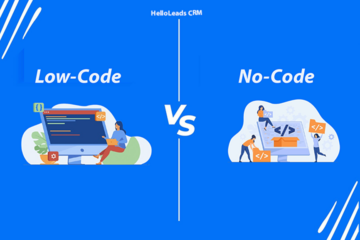
In today’s competitive landscape, a robust Customer Relationship Management (CRM) system is no longer just a luxury—it’s a necessity for businesses striving to deliver exceptional customer experiences and streamline their operations . For small and medium-sized enterprises, a CRM is more than just a database; it’s a powerful ally that consolidates data, automates workflows, and drives operational efficiency.
But a CRM’s true potential lies in its ability to integrate with other critical business tools seamlessly. By leveraging these integrations, your CRM evolves from a standalone system into a dynamic hub that fuels data-driven decisions, improves collaboration, and unlocks new opportunities for growth.
In this blog, we’ll explore five essential CRM integrations that are reshaping the way businesses operate—from enhancing marketing automation to unlocking deeper insights with analytics.
1.Marketing Automation Platforms
Seamlessly Integrating marketing automation platforms with your CRM can revolutionize lead nurturing and campaign performance. Tools like HubSpot, Mailchimp, and ActiveCampaign synchronize customer data, automate email campaigns, and track interactions across multiple channels.
Key benefits
- Access real-time insights: Monitor metrics like click-through rates, open rates, and conversions directly within your CRM for actionable decision-making
Streamline processes:
Automate repetitive tasks such as lead scoring, follow-ups, and drip campaigns, allowing your team to focus on strategy and creativity. Enhance data accuracy: Reduce manual errors by ensuring customer data is consistent across both marketing and sales teams.
Case in point:
A digital agency that integrated HubSpot with their CRM saw a remarkable 25% increase in lead conversion rates. By automating personalized email campaigns and tracking engagement metrics in real-time, they successfully aligned their marketing and sales efforts to achieve better outcomes.
2.Customer Support Tools

Delivering exceptional customer support is crucial for retaining customers. Integrating CRMs with support tools like Zendesk or Freshdesk provides support teams with immediate access to customer histories, past tickets, purchases, and interactions, ensuring a smoother and more personalized support experience.
Key benefits:
- Faster resolution times: Agents can easily access detailed customer profiles
- Improved collaboration: sales and support teams can share insights on high-value customers or recurring challenges for a unified approach.
- Advanced analytics: Enhanced reporting features, enabling small businesses to analyse support trends and proactively address customer pain points
- Personalized experiences: small businesses can deliver personalized and efficient support, building long-term trust and loyalty with customers
Case in point:
A SaaS company integrated Zendesk with its CRM and achieved a 30% reduction in average ticket resolution time, leading to significantly improved customer satisfaction scores.
3.E-commerce Platforms

For small businesses in retail or e-commerce sector, integrating platforms like Shopify or WooCommerce with CRMs creates a seamless connection between sales and customer data, enabling smarter decision-making and more personalized customer interactions.
Key benefits:
- Automated data synchronization: Automatically sync customer purchase data, such as order history and payment details, into the CRM
- Personalized marketing opportunities: Unlock upselling and cross-selling opportunities based on buying patterns and preferences
- Enhanced inventory management: Access real-time updates on stock availability directly visible to sales and customer service teams
Why it matters:
By merging CRM and e-commerce data, small businesses can enhance the shopping experience, build personalized marketing strategies, and drive repeat sales.
Case in point:
An online retailer combined Shopify with their CRM and saw a 20% boost in repeat purchases, thanks to automated upselling campaigns tailored to customers’ purchase histories.
4.Communication Tools
Real-time communication tools like Slack or Microsoft Teams are essential for seamless collaboration in modern businesses. Integrating these platforms with CRMs enhances team coordination and ensures that customer data is always within reach.
Key benefits:
- Instant notifications: Receive real-time alerts about CRM updates, such as new leads or status changes, sent directly to team communication channels
- Simplified data sharing: Share customer records and sales updates across teams effortlessly, reducing the need to switch between platforms
- Streamlined collaboration: Discuss customer strategies directly within the communication tool while linking CRM data for reference
Why it matters:
This integration fosters a more connected, productive, and informed workforce, ensuring no opportunities are missed.
Case in point:
A marketing team used Slack’s CRM integration to receive instant notifications about high-priority leads, enabling faster follow-ups and reducing response times by 40%.
5.Business Intelligence & Analytics Platforms

In today’s data-driven world, integrating CRMs with analytics platforms like Tableau or Power BI is crucial for uncovering actionable insights. These integrations elevate decision-making and enable a deeper understanding of customer behaviors and business performance.
Key benefits:
- Dynamic visualizations: Transform complex customer data in dynamic dashboards, making it easier to identify trends and opportunities
- Predictive insights: Analyze customer behavior to predict future patterns, such as churn risks or high-value prospects
- Comprehensive reporting: Merge CRM data with other business metrics, such as revenue or marketing performance, for a holistic view of operations
Why It Matters:
These integrations empower businesses to make informed, data-backed decisions, enhancing efficiency and profitability.
Case in point:
A small consulting firm integrated Tableau with their CRM, enabling them to identify high-value clients and optimize marketing spend, leading to a 15% revenue increase within six months.
With these integrations, small businesses can transform raw CRM data into actionable strategies, gaining a competitive edge in a rapidly evolving marketplace.
In conclusion:
The right CRM integrations aren’t just enhancements—they’re essential for businesses striving to stay competitive and efficient. By connecting your CRM with powerful tools for marketing, customer support, e-commerce, communication, and analytics, you can:
- Streamline workflows
- Strengthen customer relationships
- Make smarter, data-driven decisions
As technology advances, choosing integrations tailored to your unique business needs will be key to sustained success and growth.
Take the next step—start exploring these integrations today to unlock the full potential of your CRM and transform the way you do business.
Share this blog :










